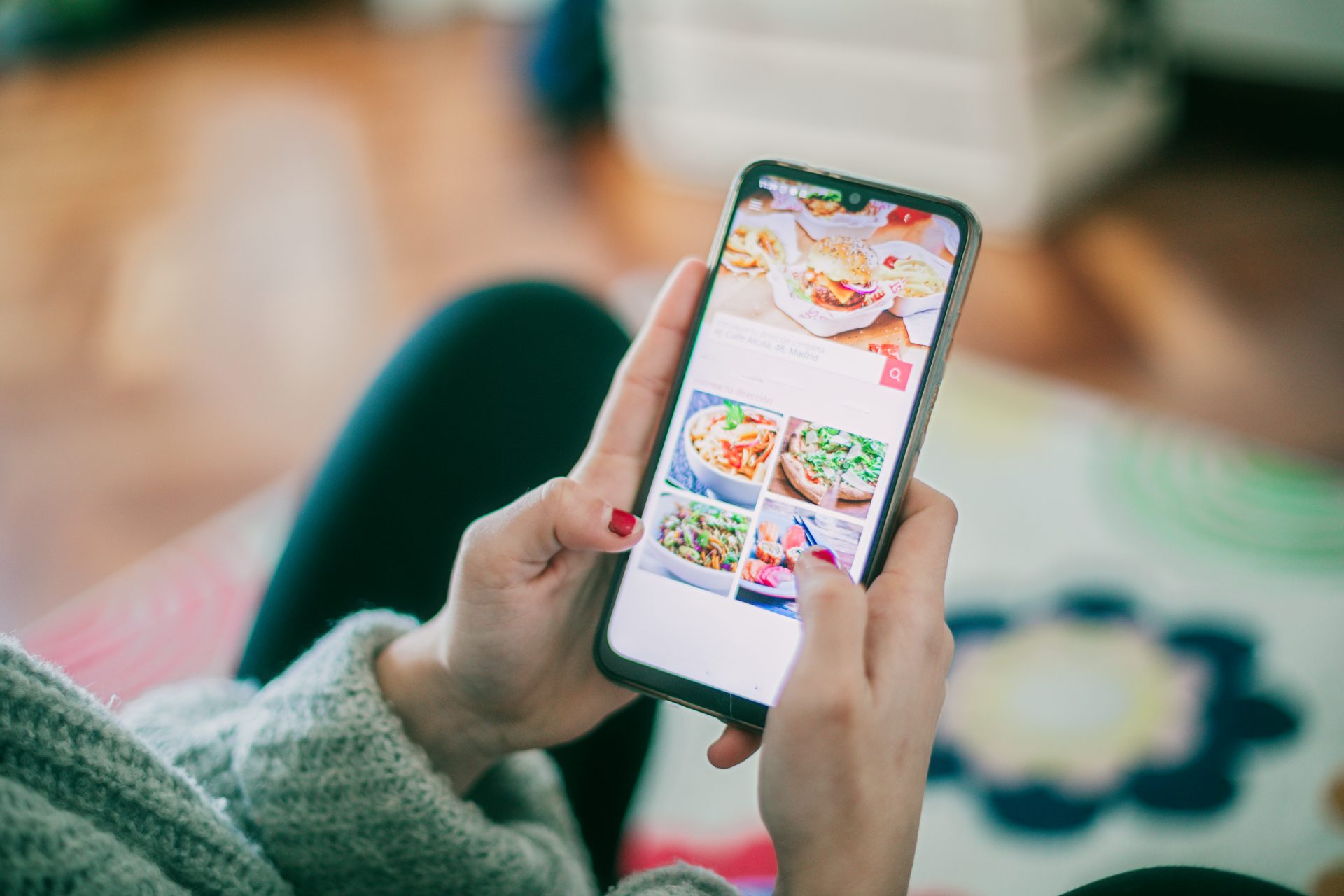Instagram has helped inspire many women to get into exercise – but a lot of advice from influencer should be taken with a pinch of salt.
One in four influencer workout videos give the wrong advice. That’s according to research, by money.co.uk’s mobile service team, which found exercises such as kettlebell swings were being incorrectly performed up to 80% of the time. Personal trainer Maiken Skoie Brustad, who analysed the videos, reported that a lot of the workouts were “back injury central” and that she wouldn’t recommend them – and yet, thousands and thousands of social media users were watching them.
It’s hardly unexpected given how easily misinformation can spread online. You only need to look at the rise of Belle Gibson – the Australian influencer who scammed her followers into believing her diet cured her non-existing cancer – to realise that. Of course, she’s at the extreme end of fake health news, but I do think that lockdown has made more of us vulnerable to the smoke and mirrors of wellbeing influencers.
You may also like
Muscle tone: Why ‘toning’ your body is a total myth
I speak with friends daily who’ve signed up to new workout programmes in an attempt to do more movement, only to follow unqualified advice that’s left them depleted or injured. There are amazing influencers out there, some of whom I hold responsible for teaching me about exercise and nutrition. But I’ve also followed some who have shared less trustworthy wisdom. And yet I still find myself sucked into their claims of what it takes to live a ‘healthy lifestyle’ on social media.
The irony is that I understand the importance of truth and what to look for in a credible experts. It’s a huge part of my professional life as a fitness journalist and something I always have in the back of my mind outside of work. But I used to scroll and scroll through posts by people who I believed were the holy grail of fitness, yet hadn’t done a single thing to prove it.
I once came across someone who seemed the epitome of ‘health’. They said they ate just 70g of carbs a day, so I thought that’s what I needed to do, too (research suggests active people should have a minimum of 3g of carbs per kg of bodyweight, which is over double the amount this influencer suggested). I was convinced that to get the most from my strength training I needed to do six weekly sessions, following a bodybuilding split with individual workouts just for chest, shoulders, back, hamstrings, glutes and quads. Spoiler alert: it didn’t get me the ’toned’ body or strong mind I’d been promised.

Looking back, I find it comical that I fell for such rubbish. But for many people, it can be more sinister. My friend Charlie spent months running herself into the ground because she followed someone who said she had to burn a certain number of calories in each workout to make them ‘count’. She bought supplements sold through affiliate links because she was told they were the only things that would get her results.
“I became obsessed,” she says. “It was so unsustainable and I then got upset when I couldn’t keep it up. Looking back, it’s worrying to think how much stress I was putting myself through.”
I’d scroll and scroll through posts by people who I believed were the holy grail of fitness, yet hadn’t done a single thing to prove it.
Charlie sees it as a learning curve “but I do think it could be really serious for girls who didn’t achieve what they thought they would from this advice,” she adds.
Health psychologist Dr Sula Windgassen says we often follow advice from these people because of social comparison. We live in a society that associates health with aesthetics so we mistakenly believe those who look a certain way can give the best advice. More often than not, they can’t. “Even if the advice is well intended and responsible, if you draw a comparison to how you live your life and it increases the expectations you put on yourself or leads to negative emotions, it’s time to take a step back,” Dr Windgassen adds.
But how do you know when the advice you’ve been following is wrong or dangerous? “It’s not an easy process but if you are aware that you are dissatisfied with the way that you’re eating or exercising then you need to be deliberate about changing it,” says Dr Windgassen. With her advice, and my own ups and downs from life on social media, we’ve found five ways you can spot the BS and find influencers and experts whose advice will actually help you.

You may also like
Strength training for my mental health: why my workouts aren’t for my body, but for my mind
Check for nuance
Unfortunately, we are drawn to the simplest and most easily digestible advice. We want black and white, ‘do this not that’, ‘eat this and feel that’ graphics, because it gives us assured actions. Social media also rewards that, with limited caption space and an algorithm that serves you the best performers rather than the most nuanced posts. Unfortunately, no health care is black and white, meaning the real advice tends to be less enticing, littered with disclaimers and warnings and not promising of any real results.
“The number one thing is that there are professional standards and ethics. Anyone going through the training is accredited with a regulatory body, and they have to be held accountable if they violate the profession. So that means the content they’re providing has to come with a caveat,” explains Dr Windgassen.
Write down your ‘shoulds’
“We need to be deliberate in our unlearning, and one way to do this is to be as operational as possible,” says Dr Windgassen. She suggests writing down a list of everything we think we ‘should’ be doing. “This could be exercising a minimum number of times a week or for a minimum number of minutes at a time. This gives you a clear idea of what you’re expecting of yourself, and then you can see how valid or useful they are to you and your life,” she says.
Work out what things on that list make you feel bad or that you struggle to keep up with, and make those things a priority to unlearn. Even as someone who thinks that they’ve got it together when it comes to their health and fitness routine, I felt alarmed when I started thinking about the actions that I hold myself accountable to doing.
No health care is black and white, meaning the real advice tends to be less enticing.
Diversify your feed
Yes, it’s the most common recommendation when it comes to improving your social media use. But that’s for good reason. “Find accounts that promote a different form of moving or looking – where the users still look happy – and it will prove that what you deem ‘acceptable’ or the assumptions you make about how much you have to exercise might not be quite right,” Dr Windgassen says. “It might remind you that it’s time to introduce a new level of flexibility.”
Alternatively, diversify your sources. “Look at different media and different reports on the subject and compare it to the NHS guidelines,” Dr Windgassen suggests. You probably won’t be amazed to hear that the national recommendations don’t include drinking celery juice or doing an hour of high intensity exercise a day – so why are you believing people who suggest it over advice from the top consultants?
You may also like
Fat shaming in ballet: “Who says there’s one specific body type for sport?”
Question qualifications
Most influencers probably have no intention of scamming their followers. But there are some useful questions to ask of someone putting facts out on the internet before taking them as gospel.
1) Where did they learn this from?
It takes years and years of working with real clients to really understand how the body and brain work together for an efficient training session. Make sure that you question whether the person you’re listening to really is an expert, and have the right level of experience to effectively advise on your fitness.
2) Are they still learning?
Not everyone is financially or time-rich enough to constantly be paying for new qualifications, but an interest in the subject they are talking about is important. Do they share new research, show an interest in the science and point followers to other people who might know more? Or do they claim to know everything that there is to know, no matter how subtly they do so?
Some of my favourite fitness professionals who qualify their own knowledge include Shona Vertue, Alice Liveing and Dr Hazel Wallace.
You may also like
Strong Women Collective: 14 women who are taking a no-nonsense approach to health and fitness
Trust your gut
If something feels wrong, it probably is. Or it’s at least wrong for you, and that’s what’s important. “People sharing their experience and getting a big following does make a huge difference to people and can be really inspirational. But just because one thing’s worked for somebody doesn’t mean it will always work for everyone, and any advice has a huge variation in outcomes,” says Dr Windgassen.
Ultimately, you shouldn’t be living a life based solely on the advice of another person, regardless of whether or not they are the most qualified person on Instagram. Because no one else knows how you feel on a given day, month or year, or how your body and mind thrives, especially if they’ve never met you before. “I now realise that I know more than I thought I did,” agrees Charlie, who tells me that she is now in charge of her training schedule. “Being more content with gaining strength and being generally fit rather than only caring about losing weight has helped, too.”
Follow @StrongWomenUK on Instagram for the latest workouts, delicious recipes and motivation from your favourite fitness experts.
Source: Read Full Article
